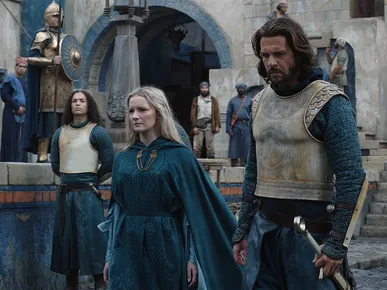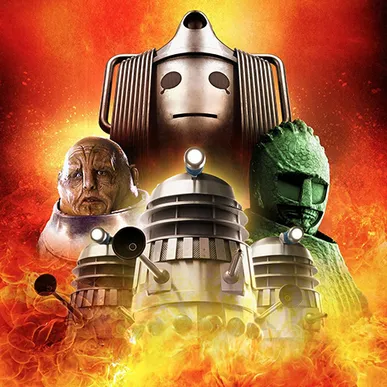
Blessed are the legend-makers? The Rings of Power, season 2, reviewed
In the opening episodes of the second season of Amazon’s lavishly-budgeted Tolkien prequel The Rings of Power, Galadriel and Elrond debate using the three magic elven rings. Can the rings be used for good, or are they too dangerous to use, since they were created under the suggestion of villain Sauron?
I couldn’t help but see an echo of the question that I’ve been wrestling with in relation to The Rings of Power, having watched the first six episodes of series two. This is a show created to sate the desire of the great empire of Amazon for a franchise success, for its own Game of Thrones or Harry Potter in terms of cultural and above all financial impact. It might seem from the beginning a cynical exercise, the zombification of Tolkien’s literary legacy into a vehicle for ‘brand extension’ and corporate exploitation of ‘intellectual property’.

culture watch
Where are all the villains?

Milla Ling-Davies
When you were younger, who was the fictional villain that had you hiding behind the sofa? The Daleks from Doctor Who? The child-catcher from Chitty-Chitty-Bang- Bang? Or, if you’re like my husband, the giant called Flesh-lump-eater from the BFG?
I recall being terrified as my mum and dad read to me from Harry Potter and the Chamber of Secrets of the serpent sneaking through the pipes, whispering ‘blood’ and ‘death’.
The draw of darkness: why horror fascinates us
One should never watch anything that wounds one’s conscience; Romans 14:23 tells us there are terrible consequences of acting against our conscience.
I don’t often, therefore, speak about my fascination with the horror genre in cinema. And yet, the popularity of horror films is worth pondering. Rather than engage at any length with the film which prompted these reflections — Robert Eggers’s 2024 remake, Nosferatu — what might its success teach us?